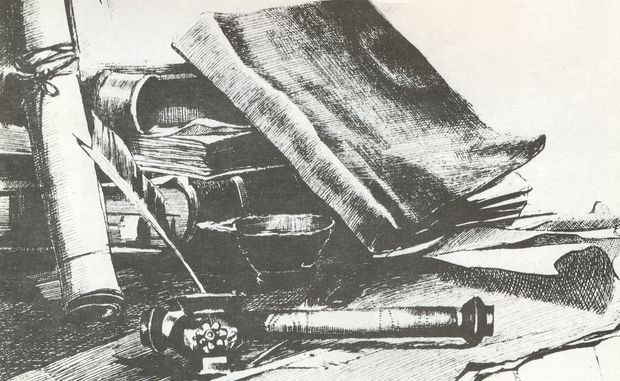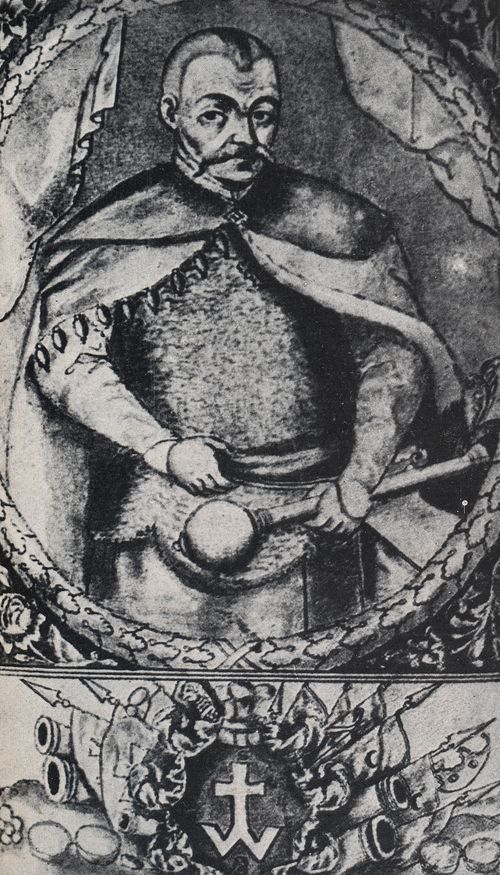Pereyaslav Treaty: a still living myth?
A follow-up on the article “The Day that Never Was?”
January 18 marked the 360th anniversary of the Pereyaslav Treaty, the event whose details and consequences have been excessively mythologized in the history of Ukraine, especially in the Soviet era. As long as 11 years ago, when plans were unveiled to celebrate the 350th anniversary of the 1654 Cossack Rada (Council) on the national level, The Day published an extensive article by Viktor HOROBETS, Doctor of History, director of the Social History Center of the Institute of the History of Ukraine, with the challenging title “The Day that Never Was? The Pereyaslav Rada of 1654 in Myths and Realities” (see The Day Nos. 3, 5, 9, and 12 of 2003. The material is also part of the book The Power of the Soft Sign, or the Return of Rus’ Truth).
It would be a good idea to quote today at least some of the author’s important lines:
“The Ukrainian elite thus faced a tragic dilemma: either to give up the achieved progress in the formation of a state and bow to the Polish king, or to try to enlist the support of a third side, even at the possible expense of their own sovereignty.
“Khmelnytsky considered at that time the Muscovite tsar and the Turkish sultan as the most likely protectors of Ukraine. Accepting the protection by both of them entailed certain advantages as well as disadvantages. While Moscow, as usual, dragged its feet, the first encouraging signal came from Istanbul…
“It seemed that Khmelnytsky achieved his tactical goal of independence. Yet, the hetman did not hurry to make the final decision. What stood in his way? It is difficult to answer this question today. Maybe, negative attitude to a Mohammedan sultan in Ukraine. Maybe, it was Khmelnytsky’s sober assessment of military dividends from this alliance, for the Porte was bogged down at that time in an exhausting war with Venice and was hardly able to render serious military assistance. Or, perhaps, the restraining factor was that the news of Ukrainian-Turkish rapprochement compelled Muscovite politicians to stop their feet-dragging and inform Ukraine as early as June 1653 that the tsar intended to take it under his protection. Tellingly, the decisions of the 1653 General Council emphasized Ukrainian unwillingness to be subjects of the Turkish sultan or the Crimean khan.

“Whatever the case, the two sides had chosen the way to Pereyaslav by the fall of 1653. Incidentally, the Muscovite side insisted that the ceremony of taking Ukraine under the tsar’s protection be held in Kyiv, near the walls of St. Sophia’s Cathedral. This would have been a very symbolic act of ‘gleaning the Russian lands’ by Moscow. Yet, the hetman pointed to Pereyaslav. All we can do here is make guesses: did the hetman do so because he viewed this act as simply a tactical success rather than an achievement of a strategic goal?
“Also questionable is the claim of well-known Cossack chronicler Samiilo Velychko that, when addressing the rada, the hetman read out articles of his treaty with the tsar. This story was later repeated in the works of well-known historians, such as Mykola Kostomarov, who started a deep-seated historiographic tradition. Khmelnytsky could not have read the treaty because it had not yet even been negotiated. All that the rada really did was formally proclaim that an alliance should be formed with the Muscovite tsar rather than any other potentate.
“But as the short winter day of January 8, 1654, was coming to an end, the allies came out of the cathedral and the hetman received the tsar’s standard, the mace and a symbolic garment (ferezeya). The envoy and Khmelnytsky had a brief conversation. Too many emotions had been expressed on that hard day. The future would bring even harder negotiations regarding practical implementation of the promises made by the tsar’s boyar.”
Actually, “implementation of the promises” is the subject of a separate discussion. We want now to take up the question of viability of the stereotypes imposed by the Soviet government. Incidentally, quite a few professional historians have devoted their publications to debunking the myth of “nationwide assembly” and “reunification,” so this topic should obviously be out discussion today. At the same time, is societal awareness really so free of narrow-mindedness?
As far as the above-quoted publication is concerned, The Day has a small, but very important, example to make. It confirms the importance of its continuous work to “explode” historical cliches. For instance, a few years ago the politician Valentyn Nalyvaiko confessed that he had rediscovered the true significance of the Pereyaslav Treaty only when he read an English-language Den on an airplane.
The Day has asked some of its readers how they interpret the Pereyaslav Treaty today, with due accountof the efforts historians have made before.
“AN AFTERLIFE MYTH”
Mykhailo SLABOSHPYTSKY, writer; executive director, League of Ukrainian Art Patrons:
“Myths about the Pereyaslav Treaty have been handed down from generation to generation and still cannot die, although it’s high time they did. Viktor Horobets said absolutely right in The Day about this historical apocrypha that it is a day that never was, and my younger son Sviatoslav says it is an afterlife myth. Can you name at least one academic who has read this treaty? We only know all this in all kinds of interpretations. Yury Tynyanov once said a paradoxical phrase: ‘Documents tell lies the way people do.’ In this case, there is no original document, but there are big lies around it. I can remember USSR history schoolbooks which my uncles studied. Published back in the Stalin era, they argued that ‘Bohdan Khmelnytsky chose the least possible evils,’ i.e., the Muscovite tsar’s yoke. And suddenly, when I was a schoolboy in 1954, we learned that there had been ‘unification, a portentous event so important for the Ukrainian people.’ In other words, two paradigms like these in the life story of one man! I also remember chapters in the old USSR history manuals which wrote that the Bohdan Khmelnytsky uprising was aimed at the unification with the fraternal Russian people. In this case I cannot help quoting Shakespeare’s well-know maxim: ‘History is a tale told by an idiot.’ If we had not lived in the Soviet Union, if we had not been taught to think that history is backwards-looking politics, we would view the Pereyaslav Rada and the things that surround it as ravings of a madman. Today, this can only be a political, not historical, secondhand commodity for political losers. Now that Ukrainian historians have pronounced their verdict, this can hardly be a matter of serious discussion. It is a shame that some Ukrainians are still trying to speak of this in respectful terms.”
THE “BRAKES” FAILED AGAIN?
Volodymyr PANCHENKO, literary critic; professor, National University of Kyiv Mohyla Academy:
“In my view, historians have exhaustively studied the topic of the 1654 Treaty of Pereyaslav. Especially much was done in 2003-04, when researchers managed to thwart the attempts of the then government of Ukraine to mark the 350th anniversary of what occurred in Pereyaslav. That period saw a lot of serious scholarly publications, conferences, and information for the general public and the media. The myths that Ukrainians were doing nothing but striving to lose their independence and ‘reunify’ with Muscovy have long been exploded. It was once a revelation for me that Bohdan Khmelnytsky, who still managed to see in horror that the ‘reunification’ was quickly leading to the annexation of the Cossack state, was trying to break free in some way out of the ‘brotherly embraces.’ He was establishing contacts and drawing up agreements with the Transylvanian duke and the Swedish king, but it was too late – the tsar no longer believed that Ukraine was a subject of international law. Historian Dmitry Bantysh-Kamensky wrote about this dramatic moment as long ago as 1822.
“So it is nothing to celebrate or mark. But it is, naturally, necessary to analyze this, all the more so that we have now found ourselves in a Preyaslav-2 situation. The impression is that we are flying into the abyss. And I mean not only the virtually secret agreements between Yanukovych and Putin, but also the ever-growing signs of diehard dictatorship in Ukraine. Thirsty for enrichment and fearful of losing everything, the authorities heed no one but themselves. The brakes have failed, and a government blinded by the light is extremely dangerous – we may lose not only the gains of democracy, but also statehood itself. Only the force of public resistance can avert a disaster.”






